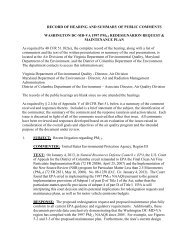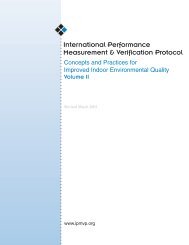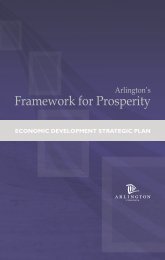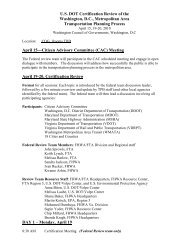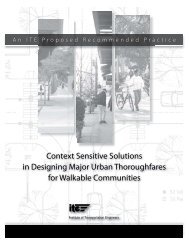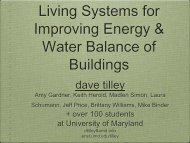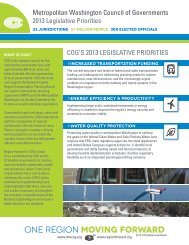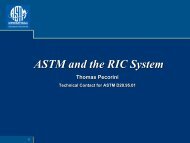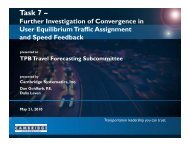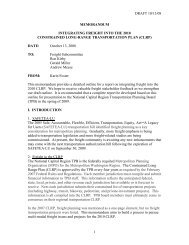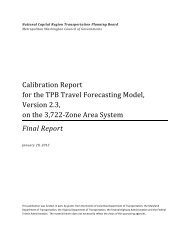PTI Local Government Energy Assurance Guidelines - Metropolitan ...
PTI Local Government Energy Assurance Guidelines - Metropolitan ...
PTI Local Government Energy Assurance Guidelines - Metropolitan ...
Create successful ePaper yourself
Turn your PDF publications into a flip-book with our unique Google optimized e-Paper software.
Voluntary Pre-Event Collaboration: Create and/or Update Mutual Aid Agreements Where<br />
Appropriate<br />
Voluntary pre-event collaboration between local jurisdictions and other public sector partners can save lives while<br />
also ensuring rapid recovery from an energy emergency. Voluntary mutual aid agreements (MAAs) can help<br />
formalize partnerships with other public sector entities. While MAAs typically have not been developed to address<br />
energy supply disruptions, they may be used as a template and adapted to address an energy emergency. One of the<br />
most important aspects of a mutual aid agreement is that it is entirely voluntary. Mutual aid agreements can cover<br />
topics such as dispatching emergency power generation resources, fuel storage and transportation agreements,<br />
service redundancies, and emergency personnel support. Typical non-energy mutual aid agreements include topics<br />
such as search and rescue, sandbagging, emergency medical care, and debris removal.<br />
A mutual aid agreement is a written understanding between governments on how, when, and the extent to which<br />
aid will be given from one local government to another upon request. These agreements typically apply to response<br />
activities, not planning or recovery. MAAs are practical and cost-effective, as units of government do not have to<br />
hire staff and purchase equipment for events and situations that may occur only rarely, as in an energy emergency.<br />
Instead of having to carry the costs associated with permanent staff (and other resources necessary for an effective<br />
response action) on a sustained basis, the requesting jurisdiction reimburses the lending jurisdiction for ‘loaning’<br />
staff and resources (such as hazmat vehicles) to the requesting jurisdiction on an ‘as needed’ basis. The costs for this<br />
‘loan’ are agreed upon in advance and written into the MAA.<br />
In the vast majority of incidents, local and State resources and regional mutual aid will provide the first line of<br />
emergency response and incident management support. Tribal and local authorities, not Federal agencies, have the<br />
primary responsibility for preventing, responding to, and recovering from energy-related emergencies and disasters.<br />
Mutual aid agreements can help line up resources far in advance of a disaster. An organization devoted exclusively<br />
to mutual aid agreements is the Emergency Management Assistance Compact (EMAC). It was established in 1996<br />
as a partnership between member States. Communities developing EAPs may find much of EMAC’s work to be<br />
transferrable to local governments. 41<br />
3.10.2 Non-<strong>Government</strong>al Organization (NGO) and Other Partnerships<br />
Non-governmental organizations are often overlooked in the planning and response phases of an emergency, and are<br />
frequently sought out and deployed only in the recovery phase. Although few would argue that they are not effective<br />
in this role, their resources could be leveraged even more effectively if they were included in planning and response<br />
team meetings and decisions. There are numerous entities that fall under the general categories of non-profits, faithbased,<br />
and charitable organizations that serve the disabled and other vulnerable populations. Organizations such as<br />
food/housing/business co-ops also could add value to the efforts of the Salvation Army, Red Cross, and other allied<br />
entities in the recovery stage of an emergency.<br />
41<br />
http://www.emacweb.org/?150.<br />
70 | 3 – How to Develop or Enhance a <strong>Local</strong> <strong>Energy</strong> <strong>Assurance</strong> Plan



